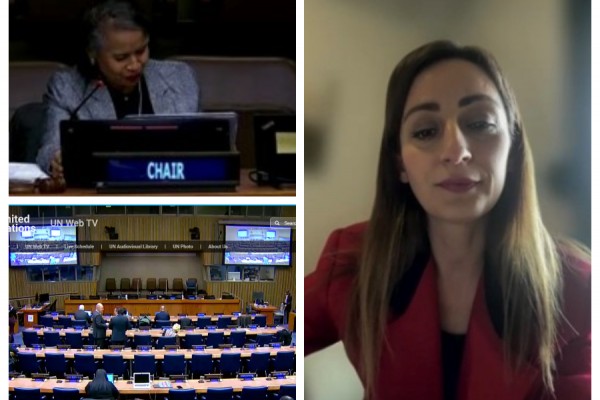
ReSPA Director Contributes to the 22nd Session of the UN Committee of Experts on Public Administration titled “Urgently Transforming Institutions for a Greener, More Inclusive and More Resilient World at a Time of Multiple Crises”
UN Headquarters, New York (Online)
Among various sessions addressing the ways to respond to the effects of climate change in institution-building efforts in fragile countries and countries emerging from conflict, the application of the UN principles of effective governance for sustainable development for the achievement of the SDGs, public financial management in times of emergency and implications for budget credibility and ways to stimulate public sector innovation through digital technology, Director Handjiska-Trendafilova contributed today to the session “Reinventing Public Sector Workforce Training and Institutional Learning Towards Changing Mindsets in the Public Sector”.
Stressing ReSPA’s instruments and results in advancing public administration reforms and institutional learning in the Western Balkans, Director Handjiska-Trendafilova welcomed the cutting-edge advice and recommendations collaboratively developed during the work of the 22nd CEPA session “as important policy guidance in the permacrisis context we find ourselves in. We all feel, breathe and live the urgency referred to in the main theme – and increasingly so given the off-tracks, we find ourselves in meeting the 2030 Agenda, as we have hit the midterm point. On behalf of ReSPA, we can attest that the produced expert recommendation paper raises critical real-life questions and confirm its high-level convergence and alignment with our work” – pointed out Handjiska-Trendafilova.
Director Handjiska also stressed many aspects that can be further highlighted in the expert paper that “include the importance of developing strategic foresight capacities, urgently and smartly working on boosting the attractiveness of public sector in conjunction with youth empowerment, and adjusting to mission-driven and agile public sector posts to attract our talented youth”. And finally, “to more vigorously communicate, share, and cross-fertilize good practices – always in a relatable manner, with a human face”.
Handjiska also underscored the importance of peer learning, networking, mobility, and knowledge management platforms for institutional learning and changing mindsets in public administration.
With the increasingly elusive 2030 Agenda goals, ReSPA Director concluded that “we need as many such reform alliances as we have around the table of the CEPA Committee to make it work” and that ReSPA is honoured to be a part of such a committed community and will continue to deliver results bringing the Western Balkans closer to reaching the SDG Goals.



